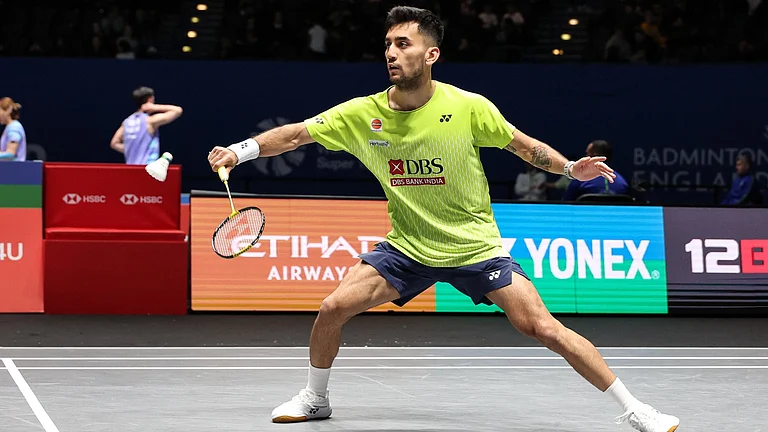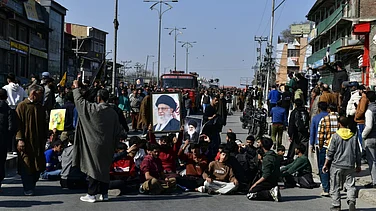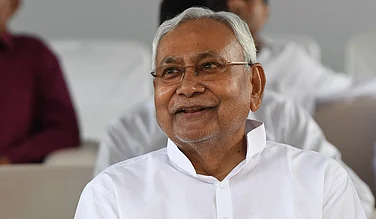After the assassination of Indira Gandhi, which was followed by the brutal killings of more than two thousand Sikhs, the then-Prime Minister of India Rajiv Gandhi said, “When a big tree falls, the earth shakes.”
Though criticised severely for his comments and rightly so, as it was perceived as a justification of the genocide, he was not wrong to metaphorically call his mother a ‘big tree’. The stakeholders of Indian politics in 70s and 80s knew how ‘big’ that fall was. But, on May 21, 1991 when Rajiv Gandhi was killed during his campaign in Tamil Nadu, was that fall so significant or comparable to that of her mother? Immediately after this unexpected loss, the only question that stormed the political scenario was, what next? Or, more precisely, who is the next?
To understand the immediate implications of Rajiv Gandhi's assassination on Indian politics, one can’t help but go back to the books and journals that came out following the tragic incident. A journey through those texts reveals the political situation in which the elections were conducted. It also unearths the factors that favoured the Congress at a time when the first phase of voting was already over and the political ‘wave’ was not at all in favour of Congress.
But the assassination truly made a change.
Economic and Political Weekly (EPW), an observer of Indian political developments for almost six decades, in its May 25, 1991 issue, just four days after the killing, published a piece titled After Rajiv Gandhi. Though the piece was unabashedly critical of the much-celebrated Gandhi scion, its introduction refers to some interesting media reports.
As per the media reports, then President R Venkataraman was of the opinion that the general elections should be called off. He was about to approach the political leaders of different shades to come together and form a stable government. The President, as the media reports say, even contemplated calling a constituent assembly that would rewrite the constitution. Was the situation that grave? The report of EPW says it was nothing but the “fragility of the country’s political institution, among them very prominently the Congress party” led to such a condition of uncertainty.
In 1984, when Rajiv Gandhi was elevated to the post of Prime Minister following the assassination of his mother, it was a moment of contemplation for Congress (I). The party that was broken by Indira Gandhi in 1969 to establish absolute power over the party eliminating leaders like Morarji Desai must have given thoughts thoroughly on whether Rajiv was ready to take over the position. The dynastic politics embedded in Congress certainly didn’t let it happen.
As Rajiv Gandhi took over as the PM of the country and became the supreme leader of the Congress (I), just like his mother, he couldn’t subside his intolerance towards the emergence of any independent face within the party. When his finance minister V. P. Singh started gaining popularity through his ruthless measures against the hoarders of black money and corrupt merchants, Rajiv shifted him to the defence ministry. However, a naturally vibrant leader, Singh continued his work there and mounted pressure to follow up the kickbacks allegedly received in arms contracts. Such vigour and independence were not taken lightly and Singh was forced to resign from the ministry, consequently leading to his resignation from the party as well.
This definitely didn’t go well for the Congress (I). Sitting on the allegations of Bofors scam, having lost one of the most popular faces in the party, Rajiv couldn’t survive the anti-Congress (I) wave of 1989 and Janata Dal government was formed under the leadership of V.P. Singh with the supports from the regional parties. This coalition however couldn’t survive as Singh pushed for the implementation of Mandal commission reports that recommended 50 per cent reservation for the SC/ST/OBC communities. The difference within Janta Party manifested in an unavoidable crack and Chandrasekhar took over as the PM with outside support of Congress (I). The overwhelming pressure from Congress (I) to pass a few bills against the will of the PM led to the collapse of this government as well within six months, pushing the nation towards another election in 1991.
On May 20, the first phase of the election was conducted and on the very next day Rajiv Gandhi was assassinated during his campaign. The next two phases scheduled for May 23 and May 26 were immediately put on hold and later was postponed to June 12 and June 15.
Lloyd I. Rudolph in his chapter Why Rajiv Gandhi’s Death Saved Congress in a book titled India Votes, edited by Harold A Gould and published in 1993, pointed out the perceptive difference between Rajiv's killing and other similar assassinations of Mahatma Gandhi and Indira Gandhi. While both in 1948, after the killing of Mahatma and in 1984 following the fall of ‘big tree’, communal situation got fuelled for the engagement of Hindu and Sikh militants, in case of Rajiv Gandhi, it was perceived as a foreign attack on Indian sovereignty. It was perceivably the punishment for Gandhi’s sending of peace keeping force to Sri Lanka where Tamils were fighting for secession. So, it was conceivable why this assassination didn’t lead to any communal mayhem.
But what it actually led to was quite grave - absolute instability within the party. The immediate reaction of Congress (I) leaders was to ask Sonia Gandhi, Rajiv’s widow with a young son and daughter, to take over as the party chief. Sonia turned down the offer creating yet again a vacuum that P V Narasimha Rao consensually filled. Unsurprisingly, the victory of the party in the elections was immediately attributed to "sympathy votes".
Walter Anderson on October 1991 in Asian Survey wrote, “Congress benefitted - by perhaps as many as 30 to 40 seats - from a sympathy vote aroused by the assassination of its leader and putative prime minister, Rajiv Gandhi.”
This perception about sympathy vote that probably pushed the seat count of Congress (I) from 194 to 227 was also supported by the post poll analysis published by India Today on June 15, 1991. The report where journalist and psephologist Prannoy Roy had been consulted said that the sympathy vote in the second and third phases of the election gave a swing to the women’s voting patterns and added almost 9% vote to the Congress (I).
However, Rudolph shows that the swing was not only limited to women, rather the rural other backward class, SCs, STs and Muslims as well gave huge support to Rajiv Gandhi. There could be two possibilities - first, the mobilisation of BJP on the communal ground targeting the demolition of Babri Masjid gave Congress a space again to come back or secondly, it was a situation where ‘anti-Congressism’, as Rudolph calls it, lost its value.
The major opposition towards the Congress that was built up since the days of Indira Gandhi was mostly centred on the supremacy of Nehru-Gandhi dynasty. When there was none from the dynasty to take over and the only claimant (Sonia) even denied taking the post, there was hardly any reason, as Rudolph shows, for people to reject the old guard.
However, Indian politics has never been as easy as it is made out to be. The emergence of Hindutva forces though definitely provoked an aspiringly secular mass mobilisation reflecting in the formation of P V Narasimha Rao government with outside support from Left parties, the continuous decimation of Gandhi family and the narrative of sacrifice peddled by the leaders also pulled in votes. The economic liberalisation the ground for which was prepared during Rajiv Gandhi’s reign only took its proper shape during this period besides the strengthening of Mandir and Mandal controversy.
For Indian politics, the assassination of Rajiv Gandhi thus was a moment when the history of Indian politics was rewritten - for the first time there was no ready scion to take over the politics of the country; nor there was anyone who was accepted unanimously. So apart from the tragic death of Gandhi, it was a phase when Indian democracy passed through its qualifying tests - where the ‘leaders’ are to be elected, not ‘coronated’, where the seeds are to be sown for a tree to grow and the roots must be so strong that even in fall it doesn’t let the soil disintegrate, it must hold on the components so the earth doesn’t ‘shake’.























